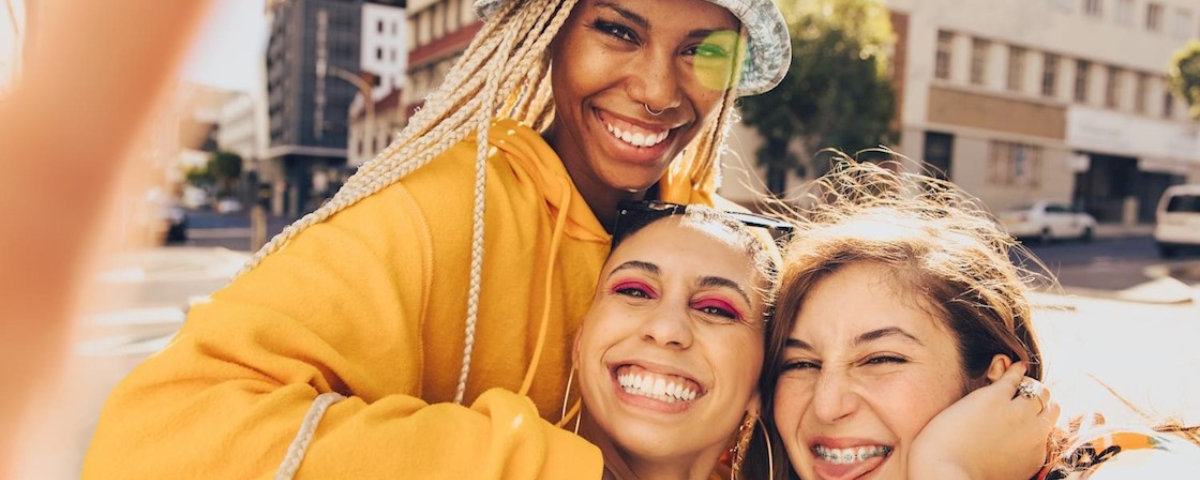Gen Zs are about 25% of the US population, and they’re growing up fast. (They are currently between the ages of 9 and 24.) This digitally native cohort has unique shopping habits after going through Covid in their formative years and thanks to their comfort with the digital world. From TikTok to the creator economy to payments trends, they are influencers in many ways, in many places.
Their influence on the beauty industry is significant for many reasons: 43% of US adult Gen Zs start their product searches on TikTok (JungleScout). This behaviour further establishes the power of social media (and certainly TikTok) where young beauty consumers are concerned.
This generation buys into influencer-endorsed products because of their focus on authenticity. They want to believe that the celebrity or influencer is creating a product because they believe in it (though we know this is often not the case). According to Cosmetify, the top 10 celebrity beauty brands in the US have combined retail revenue of about US$1.2 billion. Small but powerful and definitely influential.
Gen Z has been instrumental in promoting diversity and inclusivity in the beauty industry. They have championed a broader range of skin tones, body types and gender expressions. This push for inclusivity has led to the celebration of unique features and increased representation in all forms of imagery.
This demographic has a heightened awareness of environmental and social issues, pushing for sustainable and ethical beauty products. They prioritize transparency in ingredient selection and manufacturing processes. They want eco-friendly packaging and the elimination of animal testing (They certainly aren’t alone in that category). This has prompted many companies to adopt more sustainable practices and develop products that align with these values.
This group is vocal about a number of causes that may not appear to be directly related to the beauty industry, but may influence us in discreet ways. Gen Z wants to know what companies stand for, how they vote, where they contribute money, how they treat their employees, how they deal with mental health issues, gun control, abortion rights.
There has been a strong interest among Gen Z consumers in “clean and natural” beauty products. They seek out brands that use minimal or no synthetic ingredients, prioritize “natural” and organic ingredients, and are free from potentially harmful substances. While this trend has influenced the development of “clean” beauty lines and increased transparency about product formulations, it’s also full of myths and half-truths. Greenwashing is rampant.
- “Clean and natural” ingredients and products are not defined or regulated.
- The “free from” claim is not allowed in the EU.
- There are many concerns about carbon footprint, as well as over farming where natural, plant based ingredients are concerned.
- Plant based ingredients may be more sensitizing, less consistent, less sustainable, less efficacious and more expensive than a synthesized, lab created version.
- “Natural” preservative systems may not be robust enough to ensure product safety and shelf life, as we have recently witnessed with a couple of “natural, green” brands.
Gen Z has embraced a culture of do-it-yourself (DIY) beauty and self-expression. They are passionate about experimenting with makeup, hair colors and unique styles to express their individuality. This has led to the popularity of tutorials/how-tos, beauty hacks, dupes and creative makeup looks shared endlessly through social media platforms.
Appreciation for “retro” and a simpler life appears to be a feature of this generation’s behaviour: embracing analog cameras, old fashioned notebooks and pens, long playing records (LPs), in person experience and actually getting off the grid (at least occasionally). This phenomenon may be behind the quest for simplicity, thrift shopping and simplifying beauty products in a back-to-basics way. Just look at what Gen Z has done with CeraVe!
This generation has shown a preference for authenticity and realism in beauty advertising and campaigns. They value brands that embrace imperfections and promote body positivity. Have you noticed the number of brands that offer freckle pens? This has led to a shift away from heavily retouched images and a greater emphasis on real people with diverse body types, skin conditions and ages.
Overall, Gen Z’s influence on the beauty business can be seen in the push for inclusivity, the demand for sustainable and ethical products, the popularity of DIY and self-expression, the shift towards “clean and natural“ beauty and the emphasis on authenticity and realism.
Many of them are very young, with opinions and preferences changing quickly and often. They are ethnically diverse and the largest generation in American history: about 69 million strong. Studying their behaviour is challenging. But don’t overlook them or take them for granted. Many of them believe they can change the world, and they just might!
Enjoyed this article? Get more by subscribing to our newsletter!
Feeling inspired to see ingredients and trends in action?
Then why not visit one of the in-cosmetics events around the world?

